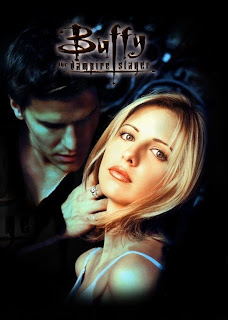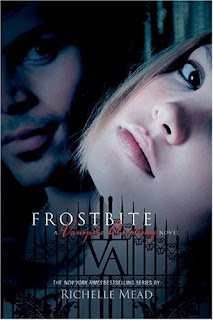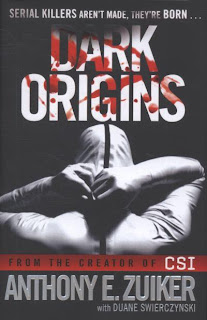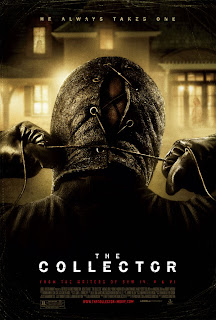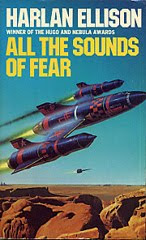Well now. It’s been a while, hasn’t it? If it provides any kind of justification for my absence, I’ve recently had a job which took me out of London (and away from easy access to a full-size keyboard), but now I’m back.
And what, you may wonder, have I decided is the best way to re-commence regular blogging activities? Why, tis nothing less than the perennial subjects of love and hate… well, kind of.
Love and hate, we’re often told, are two sides of the same coin. Or there’s a thin line between them. And so on. Basically, we’re often fed the idea that the two of them are very close together – it’s simple enough to see why, they’re both extremes of feeling or opinion, and particularly in the field of emotion, disappointment and annoyance with someone we’ve formed an attachment for can easily cause us to become equally vehement in our negativity towards them; in films and TV shows, it’s often quite common for characters who spend a long time being antagonistic towards each others to end up smooching, though I have to say that (relaxed licensing hours notwithstanding) I haven’t seen that happen quite so frequently in real life.
If we’re going to be honest about it – and I think we ought to, as life is often more complicated than simplistic presentations of emotional duality in programmes such as the Jeremy Kyle Show would have us pretend – there’s actually a long distance to travel between love and hate, if we’re using the words in their strictest sense. I love reading, and it would take quite a lot of negative reading experiences (that is to say, bad books or whatever) before that affection for the activity turned into hate. I’m sure you can think of things which you enjoy immensely – would it really take the equivalent of a coinflip, or a hop over some imaginary line, to make you hate them with equal intensity? I doubt it.
In reality, the line between love and hate, when viewed in three dimensions, manifests as a vast plane, with slight disaffection and indifference and irritation with at various stages between the two extremes. And if love and hate are sides of a coin, we should be honest enough to admit that it’s actually more of a cylinder than a coin, with enough stages and distance from one side to the other as to make the particle acceleration corridors at CERN look like a cupboard for the electricity meter.
I increasingly feel that there’s a problem with people presenting arguments or opinions in a way that suggests you either love something or you hate it; you’re either a fan or a hater. And whilst we’ve often seen this used to simplify political debates – in 2002, a popular simplification was to suggest that any doubts about military action in Iraq equated with approval for the regime of Saddam Hussein – it also seems to be used increasingly in relation to more everyday issues.
Let’s take an issue which, in and of itself, doesn’t really matter, but which is often portrayed as some kind of ideological battle; the question of whether Apple products are better than PCs. To read a lot of review columns, or to hear people talk, you’d think that one was vastly superior to the other, and that using the opposition’s products is the action of a seriously ill-informed person, whose brand allegiance (in whichever direction) is akin to that of a brainwashed dupe. The reality, of course, is a lot more nuanced – let’s be honest, both have their merits (Apple’s stuff is visually appealing, reportedly more stable [the iPhone 4 signal problems and iOS’s tendency to eat battery life could be argued to have undermined this in recent times, though], and generally held to be technically superior; PCs are cheaper, and used in more workplaces and so more familiar) and their flaws. But the problem is, nowadays, you’d think that people either have an Apple or Microsoft logo tattooed on their heart, and this means that the discussions tend to be polarised – and this simplification means that facts get overlooked – such as the fact that Microsoft helped Apple financially in the 1990s by giving them $150m to bundle Internet Explorer with new Macs as the default browser; so, that big hatred and fighting between them you read about in the press? Probably more like business rivalry, but of course that’s not so interesting, and it’s more fun to portray their customers as engaged in some teeth-baring hatred.
The major problem I have with this situation is the way it reduces everything to a non-discussion, and removes any possibility of people conceding that their so-called opponent has a point (watch the way politicians will invariably try to ignore facts or events in debates, even if empirically and provably true, which don’t make their argument look entirely true, as opposed to the best-guess opinion it really is). It means you can’t point at flaws in anything without being labelled a ‘hater’ or ‘anti’, even if you’re only trying to say that something has weaknesses in certain areas (cases in point: Lady Gaga is really not as stunningly original as many people insist, and Steig Larsson writes a lot of exposition).
As I’ve mentioned with tiresome regularity on the blog, my favourite TV programme of all time is Twin Peaks (it is my equivalent of Mark Kermode’s love for The Exorcist), but I’ll cheerfully admit that it’s got flaws (the second season loses its way, certain storylines are just risible, and it’s painfully clear at certain points that they’re just making it up as they go along). As long as the catalogue of weaknesses in something doesn’t overwhelm the things we like in it, then there doesn’t seem to be any problem in liking it, but there’s equally no problem in admitting it’s not perfect – very few things are unimprovable (despite what the most vocal supporters might say).
Am I asking too much? Is it really now the case that you’re either a rabid fan of something or a hater? I’d like to think not, and I’d also like to think that it’d be possible to see discussion of topics (and by ‘see’ I mean ‘encounter’, though if televised debates – on whatever topic – would like to actually show people admitting the strengths in their opponents’ arguments and the weaknesses in their own, I’d welcome that) which actually reflect that there are many waystations between the positions of support or loathing for something, whether it be a political stance or a work of art or a brand of cola or whatever. Much of the time, opinions on things fall into the median, grey band of ‘meh’, and it feels to me that pretending that you have to pick a position at one end of the spectrum and fight it doggedly with closed ears and mind is oversimplifying, and doesn’t actually enable a proper discussion to take place.
Although – ahem – I’d be remiss if I didn’t point out that I’m not so convinced of this that I don’t welcome discussion of it. That would be hypocrisy, and of course the Post Comment button exists for your input (and not just about Apple, Gaga or Larsson, ideally)…
*That would be the number “They Know”, by Shawty Lo Featuring Ludacris, I believe. Not really a fan, but it seemed appropriate to refer to it, by way of illustrating that merit may lurk where we don’t expect it.



